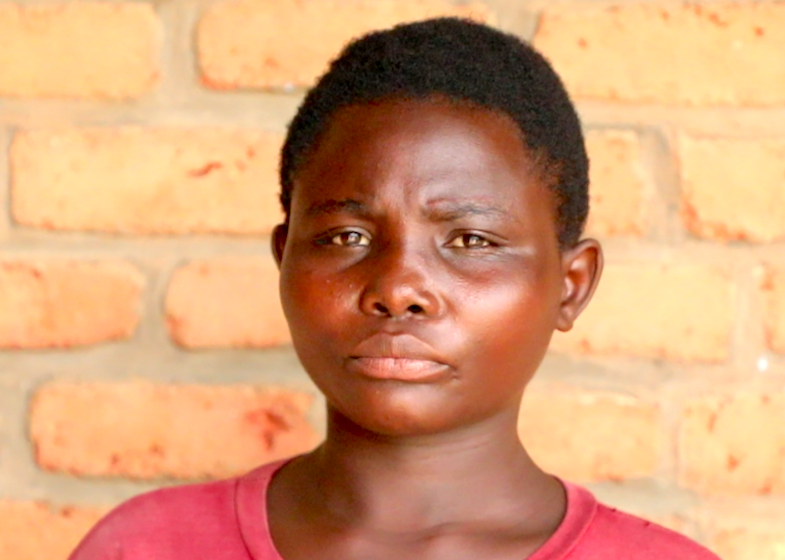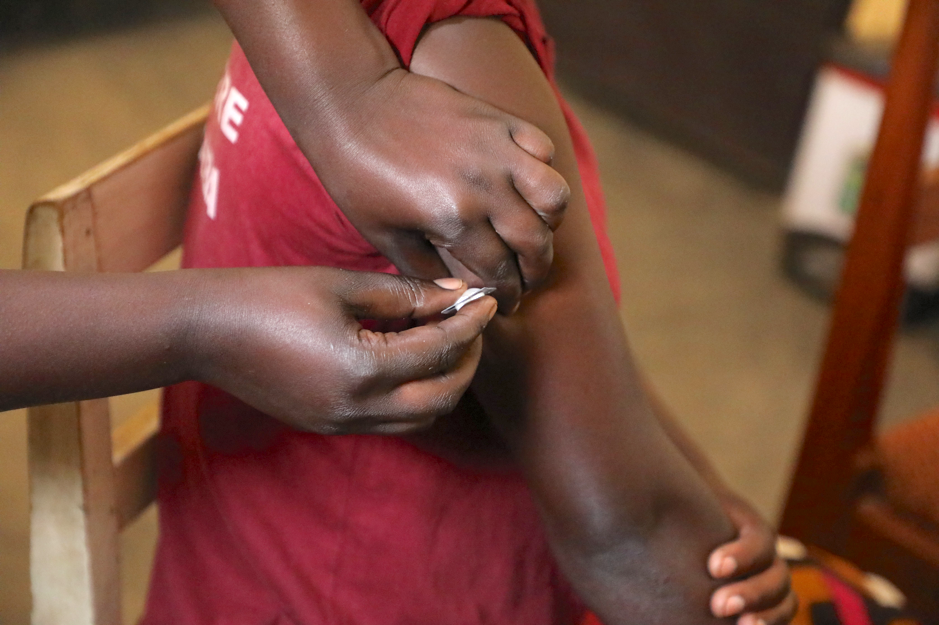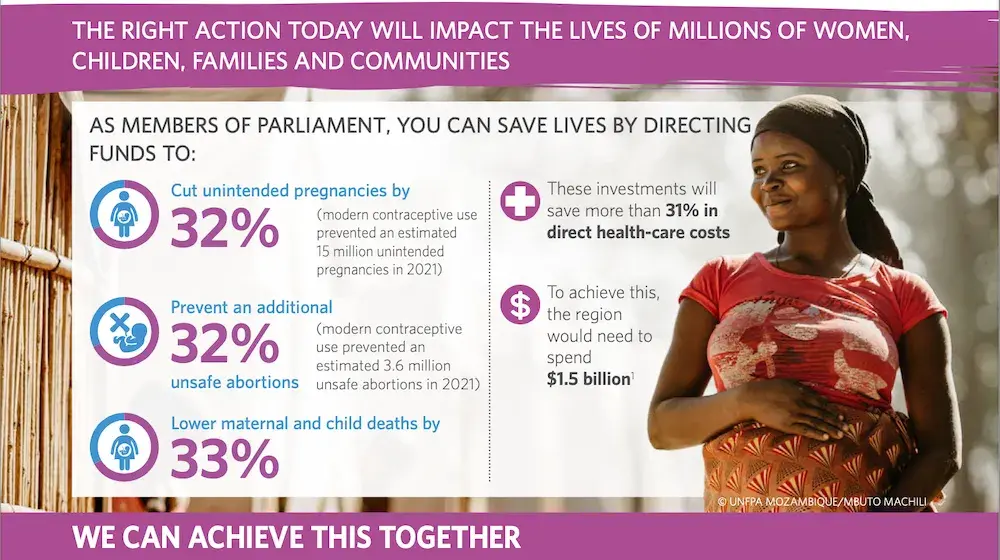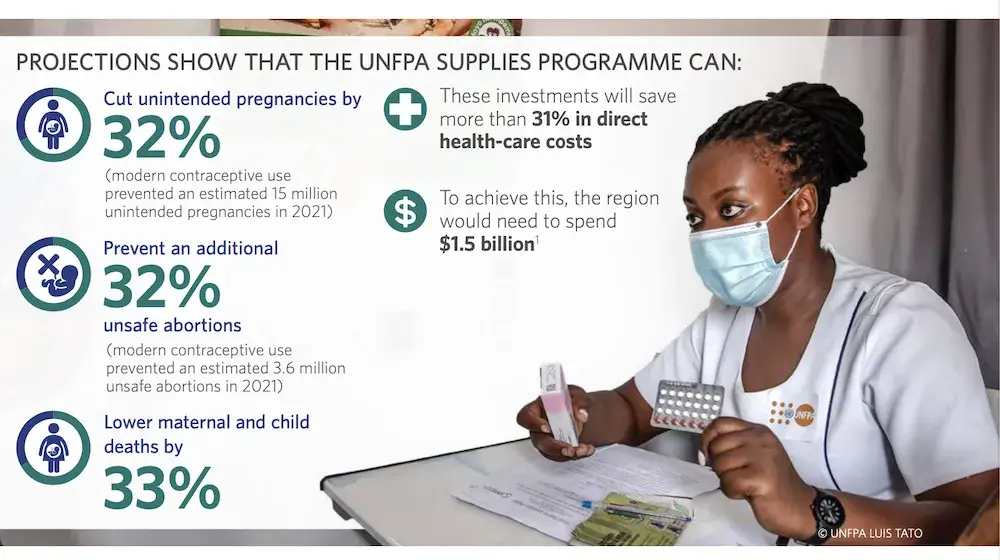NYAMASHEKE, Rwanda – Chanceline Nyiraneza’s life changed for the worse when she fell pregnant at 17, while still in high school. She dropped out of school, was abandoned by her boyfriend and lost the support of her family.

The consequences of an unintended pregnancy proved an enormous burden for the teenager. Although her parents allowed her to stay at home, they stopped supporting her financially, which meant she had to take on small jobs to earn money for herself and her baby. But help was at hand, at her local health centre.
“Before I got pregnant, I did not know anything about family planning,” she said. While attending an antenatal care programme, she received quality family planning services and counselling, which helped her make informed decisions about her body and future.
“I came to know [about] family planning methods and their benefits, through the programme at Karengera Health Centre, where I gave birth,” she said. “I decided to go with an implant method (Implanon) [that lasts] three years. It is a decision I made confidently, thanks to the information I got from the centre.”
I decided to go with an implant method [that lasts] three years. It is a decision I made confidently, thanks to the information I got from the centre.
As a result, Ms. Nyiraneza has regained her self-confidence and her hope for her future.
“My life has improved economically and socially, because even though I did not go back to school, I managed to [find] work for economic empowerment, to be able to take care of my child,” she said.
A choice in modern family planning methods
When her implant needed to be renewed, she returned to the centre and learned about new methods of family planning. This time, she chose to use Sayana Press.

“I decided to continue with family planning. The nurse informed me of the new methods and I made a choice to adopt the Sayana Press method, because it is easier to use,” she said. “After being trained on how to do self-injection of Sayana, I will be able to do it myself at home without going to the health centre, and my privacy will be ensured,” she smiles.
Family planning has enabled her to focus on raising her son. Her newfound autonomy over her body and reproduction have given her the confidence to make plans for her future.
“I feel comfortable. I can now plan my life and the future of my family. I know I will raise my son, feed him and buy him clothes without any problem, because I work hard [without worrying about] having another baby that I did not plan for,” she said.
I feel comfortable. I can now plan my life and the future of my family.
The scale of unintended pregnancies in Rwanda
In Rwanda, gender-based violence and teenage pregnancy are a priority focus for the Government of Rwanda, and for development partners. The Demographic and Health Survey (DHS 2019-2020) shows that 5 per cent of women aged 15 to 19 have begun childbearing, and the percentage rises rapidly with age – from less than 1 per cent at age of 15, to 15 per cent at age of 19. Teenagers with no education and those in the lowest wealth quintile tend to start childbearing earlier than their peers.
Of all births in the past five years, and current pregnancies, 61 per cent were intended at the time of conception, 27 per cent were mistimed, and 12 per cent were unintended. Rwanda's wanted fertility rate is 3.1, while the total fertility rate is 4.1. This suggests that Rwandan women currently have, on average, one child more than they wish to. The more children a woman has, the more likely her most recent birth was unintended. Two per cent of first births were unintended, compared to 29 per cent of fourth or later births. The proportion of unintended births ranges from 3 per cent among women aged 20 to 24, to 42 per cent among women aged 40 to 44.
If key high-impact interventions are implemented fully – scaling up of postpartum family planning, community-based provision of family planning and the introduction of new methods – a 6 per cent growth in uptake of family planning is estimated, according to a family planning goals analysis that informed the FP2030 commitments. This would increase modern contraceptive use in Rwanda from 58 per cent to 65 per cent.
Delivering on a promise
Rwanda committed to delivering on the promise of the 2030 Agenda for sustainable development and to guaranteeing reproductive rights, ensuring equitable and universal access to health care, leaving no one behind, and achieving universal access to sexual and reproductive health. This requires renewed consideration in family planning service delivery, including last-mile services and funding to meet FP 2020 goals.
The Government of Rwanda, through the Ministry of Health and its subsidiary centre, the Rwanda Biomedical Centre, coordinates implementation of the Rwanda ICPD25 Commitments, which include improving family planning service delivery, access and uptake, by expanding the available contraceptive method mix, including emergency contraceptives, in order to decrease unmet need for family planning.
Rwanda has made significant progress in the delivery and uptake of family planning services, according to the Rwanda Demographic Health survey VI (2019/20). Knowledge of modern contraceptive methods among women and men is high (99-100 per cent), with an increased total demand for family planning from 72 per cent in 2010 to 78 per cent in 2020.
UNFPA, the United Nations sexual and reproductive health agency, supports the Government of Rwanda to ensure an ample supply of modern contraceptives and other reproductive health commodities, towards achieving the SDGs and delivering UNFPA’s three transformative results – ending unmet need for family planning, ending preventable maternal death, and ending gender-based violence and harmful practices.




